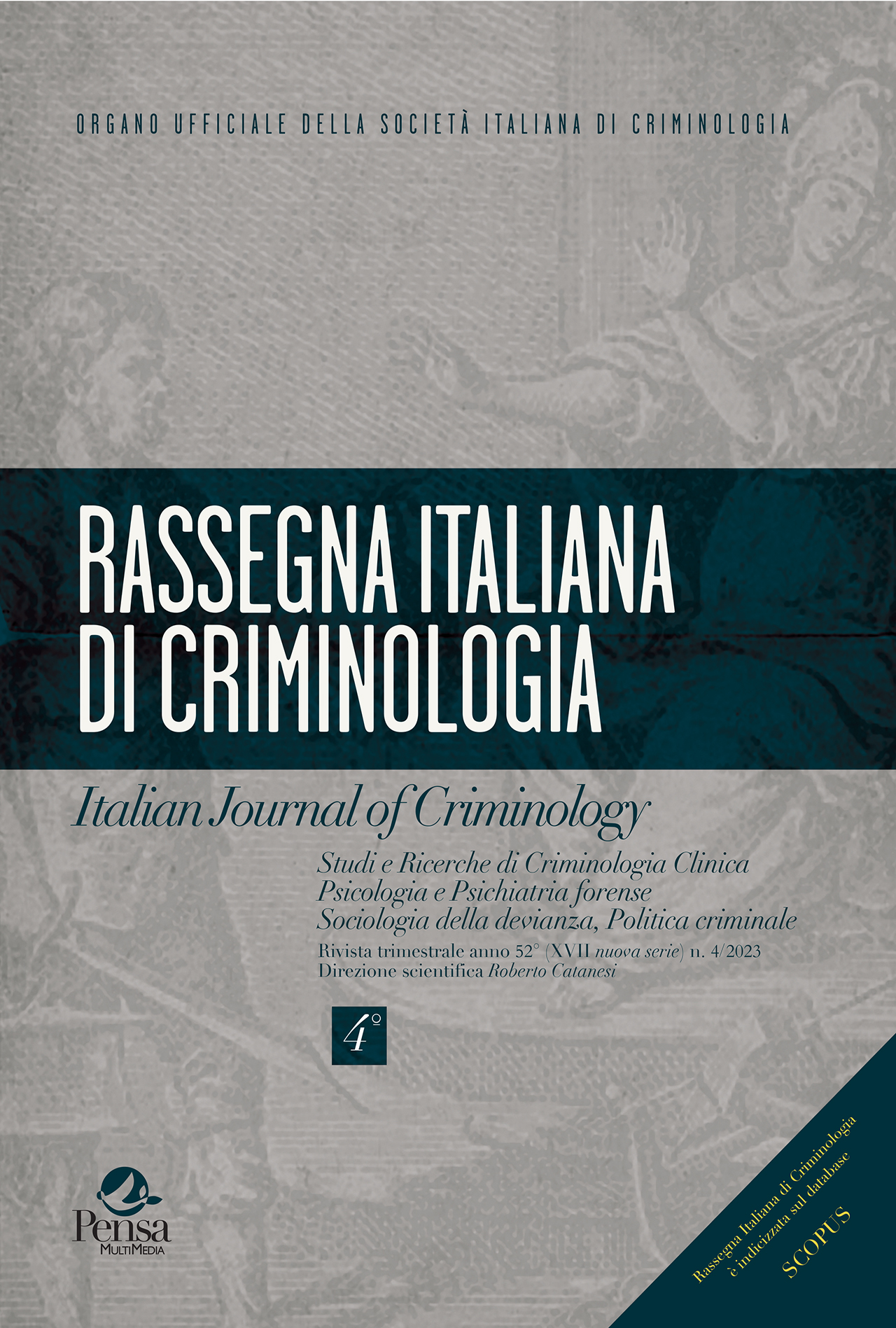Manipolazione mentale e modelli di persuasione
DOI:
https://doi.org/10.7347/RIC-042023-p340Abstract
The article examines the controversy over mental manipulation by showing that the reasons for disagreement lie in unclear conceptualization. The literature on mental manipulation is often tainted by the specious use of the metaphor of "brainwashing." This is sometimes used as a pretext to emphasize the irrationality of manipulation and its location outside the scientific realm. The purpose of this article is to show how the findings of experimental psychology and behavioral economics lead to the identification of a process of thought and behavior change that can be described in scientific terms. The case described faithfully traces the process of persuasion described in the text, which takes place through the selection of the most likely subjects in sequential and orderly steps, and concretely affects the final recruits in particular, who engage in indoctrination in a psychological and relational context that's now profoundly altered. Classical experiments and quasi experimental are quite capable of explaining the gradual induction of counterproductive decisions in a context that makes them rational for those who make them. The article shows that thought manipulation isn't a magical, supernatural phenomenon, but a persuasion process based on a set of widely studied basic principles of social psychology. Thus, a psychosocial reading is proposed that allows the criminological sciences to reintroduce into their field of study a phenomenon that had escaped them due to sociological simplifications and ideological issues that have nothing to do with the scientific debate.





